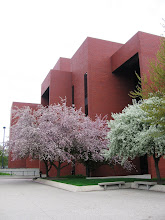Meet Some Board of Governors Members, Friends of the Alexander M. Bracken Library
Board of Governors of the Friends of the Alexander M. Bracken Library plays an important role in helping the University Libraries achieve their objective for providing the best resources for research, teaching, and learning. Meet some of our board members:
Marilyn Carey’s experience of serving on community boards includes 12 years with Muncie Community Schools and two terms as a trustee member of the Muncie Public Library. She was a media specialist at Muncie Central High School and had the distinction as “First Lady” of Muncie for eight years while the late Mr. James P. Carey served as mayor. Her hobbies include looking for treasures at antique sales and auctions. Mrs. Carey’s term is 2007-2010.
Dr. Nicole Etcheson, Alexander M. Bracken Professor of History in Ball State’s Department of History, considers Bracken Library to be the most essential building on campus. “The staff in Interlibrary Loan Services have been exceptionally helpful and efficient. I couldn’t do my work without them. All of the staff at Bracken that I’ve worked with from circulation, projection services, maps, and archives have been very professional and gone out of their way to be helpful.” Dr. Etcheson teaches Civil War and Reconstruction, Indiana History, the U.S. history survey courses, and graduate courses with expertise in 19th century U.S. She is working on a book about the Civil War home front in Putnam County, Indiana. Dr. Etcheson’s previous book, Bleeding Kansas: Contested Liberty in the Civil War Era was a History Book Club selection in 2004. Dr. Etcheson’s term is 2006-2009.
Dr. Carol A. Flores, Department of Architecture at Ball State University, brings students to Bracken Library during her Symbolism and Meaning in Architecture class (ARCH 495). There are early publications and some primary architectural texts in the Archives and Special Collections unit which Dr. Flores shares with the class. She also visited the area frequently while writing Owen Jones: Design, Ornament, Architecture, and Theory in an Age in Transition.
“I enjoy being on the board because it is a great opportunity to meet other people who are interested in improving education and some of the services we deliver,” she said. “I’ve thoroughly enjoyed working with the members and I like the vision that the board is taking.” Dr. Flores’ term is 2007-2010.
Hank Milius, President and Chief Executive Officer of Meridian Services Corporation, worked with personnel in the Archives and Special Collections to prepare for an exhibit focusing on the 30th anniversary of the company. He was pleased that he found everything he needed for the exhibit. Meridian Services is a private, not-for-profit behavioral healthcare system. After the exhibit, he was asked to join the FAMBL board by John B. Straw. Hank and his wife, Terri, have four grown sons, two of whom are married and twins who recently graduated from Purdue University. He enjoys fly fishing in his spare time. Mr. Milius’ term is 2007-2010.
The Honorable Marianne L. Vorhees, a circuit court judge, joined the board in 2007. Her friend, Nancy Turner, former head of Archives and Special Collections at the Ball State University Libraries, encouraged her to get involved because of Marianne’s passion for libraries. “I really enjoyed the recent annual dinner and Andrew Dale’s program about his father’s fight against the Klan,” she said. Marianne and her husband, Skip, have three children: a daughter who will be a sophomore at Ball State, and sons in middle school and high school. Her term is 2007-2010.
Dr. Thomas H. Spotts, Associate Professor in Ball State’s Department of Technology, joined the board in 2007. He is the coordinator of the graphic arts management program at Ball State and currently teaches introduction classes and a printing management course. He often brings his Introduction to Graphic Arts class to the Archives and Special Collections for a presentation on early books. Dr. Spotts’ term is 2007-2010.
Additional members of the Board of Governors will be profiled in future issues of The Library Insider during 2008.
Labels: Ball State, Friends of the Library, governing board, Libraries




